#boy that was a lot of books
Text

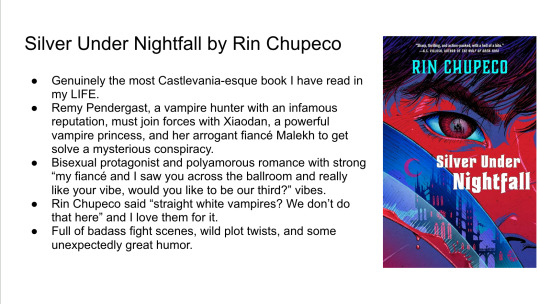

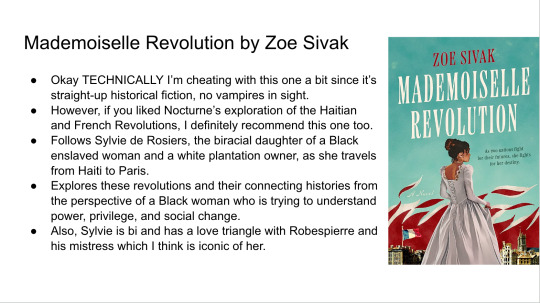


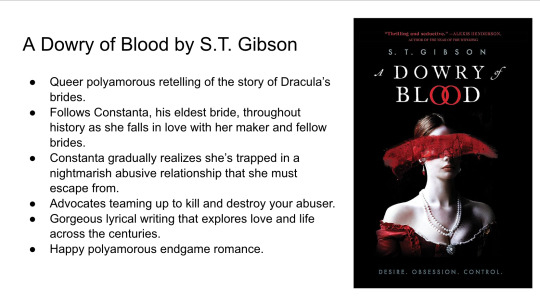

back at it again with my book-recommending ways
#listen i read SO many books what else am i supposed to do with this knowledge if not make powerpoints about them?#pie says stuff#pie reads#castlevania nocturne#castlevania#books#silver under nightfall#certain dark things#mademoiselle revolution#vespertine#house of hunger#a dowry of blood#the house of shattered wings#boy that was a lot of books#i stand by all these recs though! they're all good!
283 notes
·
View notes
Text
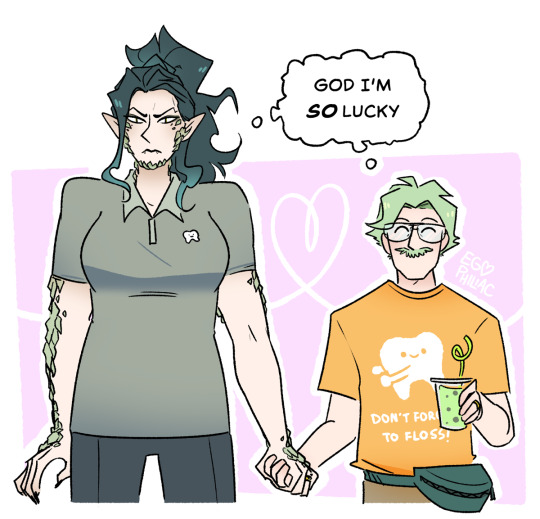
redesigning my headcanon for Sebek's parents, based on important new information (SCALES)
(you can't see it but they're both wearing crocs)
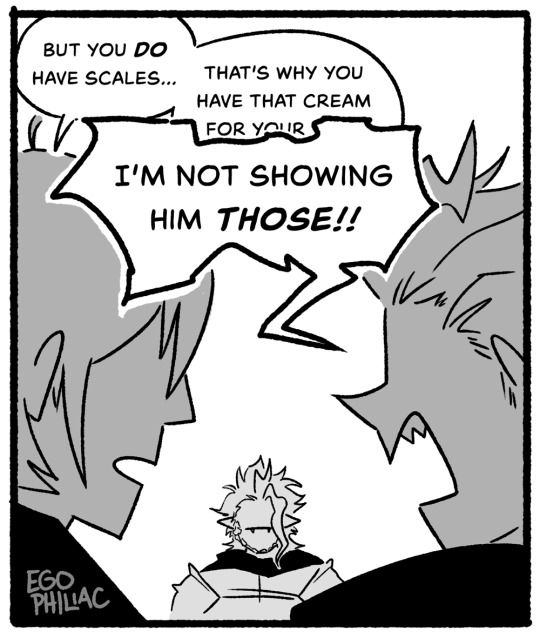
#art#twisted wonderland#twisted wonderland spoilers#twisted wonderland episode 7 spoilers#twisted wonderland book 7 spoilers#they are truly the most inspiring love story of our generation#though i guess he's not dr. zigvolt since zigvolt is the clan name...#unless he took her name which i absolutely could see. why would you ever not want to be called zigvolt.#this does tie nicely in with my headcanon that sebek's siblings got more of the fae features than he did#and he has a Complex about it#i get the impression that sebek's siblings are much closer in age to each other and also have more of their dad's chill#so sebek is sort of the baby of the family and he's got a Complex about that too#i think a lot about the zigvolt family for characters who have never actually appeared#on the subject of actual canon though#i do actually really appreciate that both sebek and silver each had a little moment of reassuring each other#that this is 400 years ago and also incredibly unfortunate circumstances#and present-day reality lilia and baul love them very much#(i do think sebek is secretly baul's favorite grandkid)#it was just nice to see! especially from sebek! he is sometimes a very thoughtful boy and it's always nice to see that side of him#sebek trying SO hard to get baul to like him though 😭#and lilia being like 'aw i think you're getting kind of fond of him :)'#i love. Characters.
5K notes
·
View notes
Text
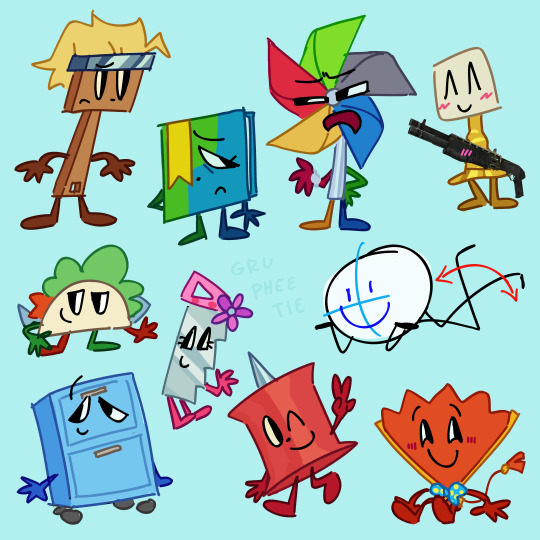
hello tumblr... first post.. wowie... i really really love objects... ^_^..
#love of the s*n#lots#animatic battle#bfdi#battle for bfdi#bfdia#bfb#tpot#inanimate insanity#inanimate insanity invitational#ii#ii paintbrush#book bfdi#michael lots#door stopper#taco bfdi#saw bfdi#animatic ab#ii cabby#pin bfdi#fan ii#histriart#oh boy im so nervous..#oh boy oh gosh oh wowie wow#dies
1K notes
·
View notes
Text
"percy, you really don't wanna start with this guy" "he's starting with me!" he is such a new yorker
#percy jackson#pjo#pjo tv spoilers#stuff#i feel like a lot of percy's attitude was lost in the show#and part of that is def because a lot of it happens in narration in the books#but also. like. with clarisse?#he didnt even say shit to her#he def says some shit in the book#and i wish he had#give me back my mouthy smartass twelve year old new york boy#pjo tv
1K notes
·
View notes
Text
Anyway shout out to Dewey who constantly looked like he was having the worst time of his fucking life in the pitches
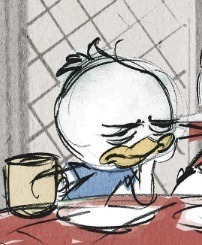
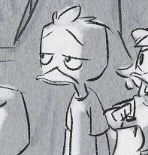
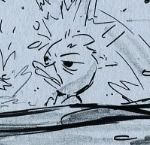
Just an 11 year old pissed off at the world it seems😭
#insane he ended up being so happy go lucky in canon#like in the art book they talk about the character shift dewey had once ben auditioned#and he made them realize they could take a more comedic approach with him#but initially dewey’s character seemed very negative and irritable#they had the label ‘the bad boy’ of the 3 on him for a bit too#bc of the massive chip on his shoulder and how unsatisfied he was at the time#and tbh you can see bits of that in the pilot#dewey’s character and overall demeanor is very different in the first two eps of s1#i LOVE my boy as the bright impulsive ball of sunshine and danger that he is#but this original pitch of him intrigues me a lot#like i can talk about pitch!dewey for hours bc#kinda feels like wasted potential idk LMAO#bc he didn’t entirely disappear at least in s1 so#just a lot of dewey thoughts#bc that’s my boy🫶#ducktales#ducktales 2017#dewey duck
538 notes
·
View notes
Text

Oh, Hazel, look! The field! It’s covered with blood!’
Fiver is my favorite character in Watership Down, he's just like me fr. I was afraid this wouldn't read especifically as Fiver, but alas... i liked my initial sketch a lot so i kept it as it was.
#my art#digital art#artists on tumblr#watership down#so just to make this absolutely clear.. this is fiver XD not an attempt of a book cover#even tho it looks so much like many watership down covers tbh#i didnt even realize until i was actually googling images for reference that i found a lot of wd covers have a rabbits profile and the fiel#what a bummer#but i still like this a lot#everyone and their moms thought about the same thing i guess#me included#anyway FIVER MY BOY#I LOVE HIM HES JUST LIKE ME#IDK WHY EXACTLY BUT I RELATE TO HIM SO MUCH#its like 'yeah i also have visions of chaos and death and despair its called having anxiety and depression'#ok no forget that
635 notes
·
View notes
Text
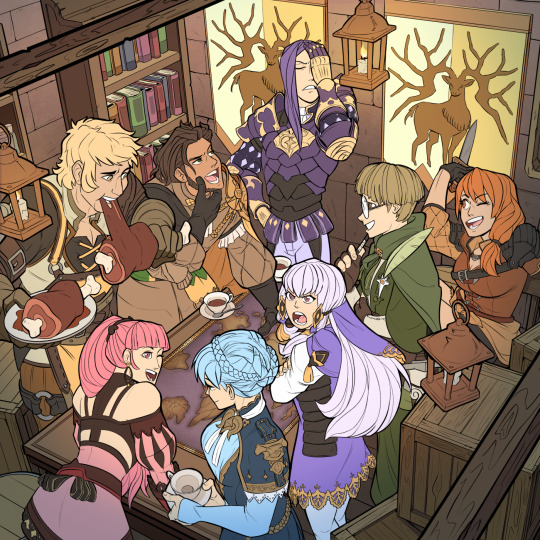
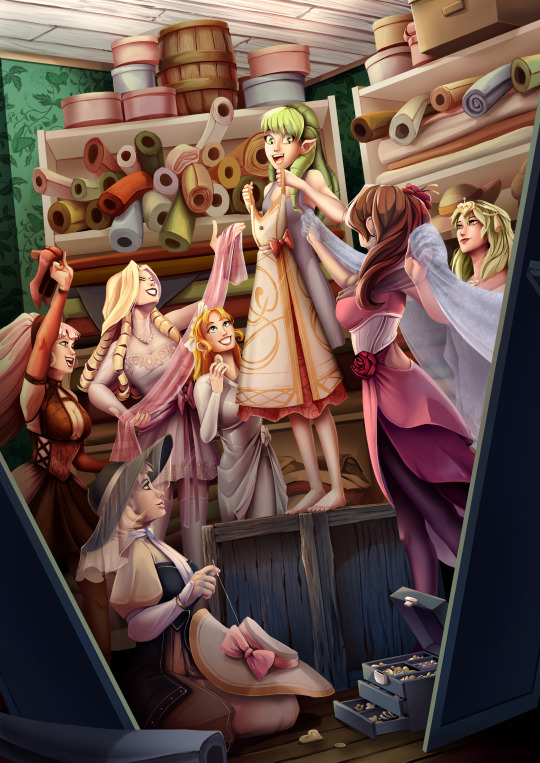

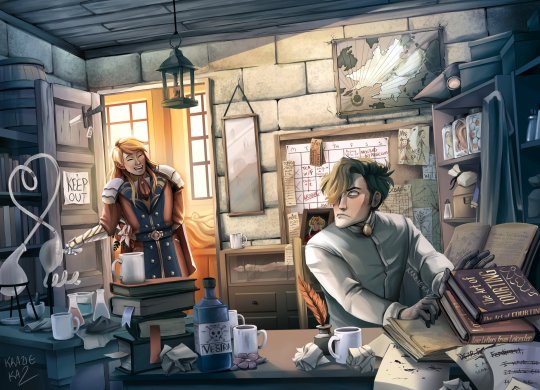
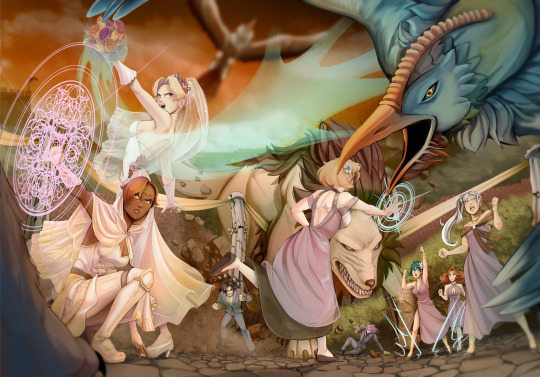
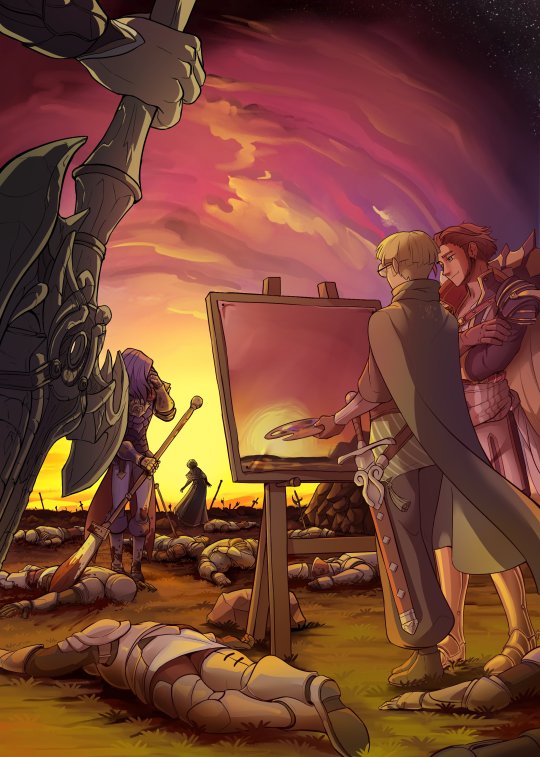
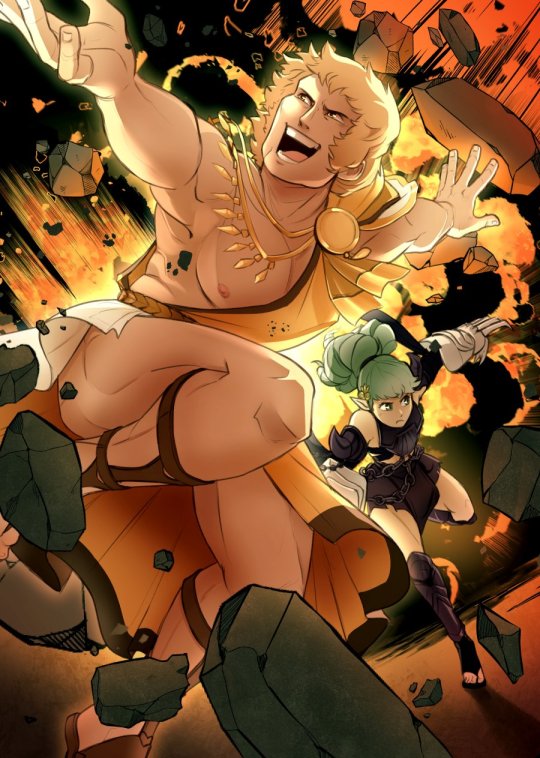
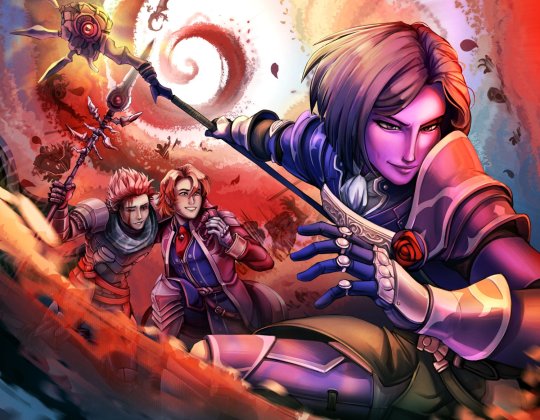
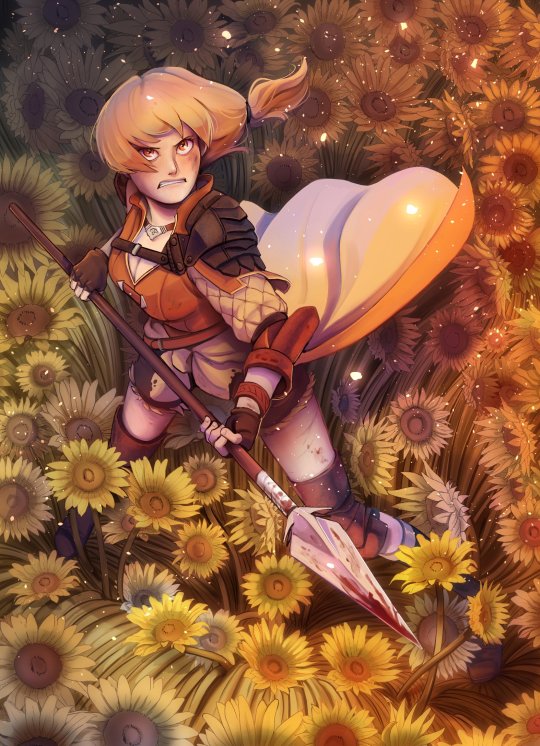
bunch of different pieces from a bunch of different zines! wooooo
#fe3h#2023 art#2022 art#fire emblem#fe3houses#golden deer#ferdibert#sorry for gunking up the ferdiebertie tab#I like the Leonie one the most so it gets a big ol preview#anyway y'all ready I'm gonna list the zines#coloring book zine#flayn zine#chess zine#ferdibert zine#wlw zine#iggy zine#raphael zine#noble horse boys zine#leonie zine#there are a lot of zines#and there's some I cannot post and some I'm probably forgetting#I enjoy zines it's a good excuse to make illustrations#hapistance#THE BEST WLW SHIP IN THE GAME FIGHT ME FIGHT ME#consider: the hijinks#I do find it super funny that their wedding party here is all the gays plus Balthus#I did it so that all the wolves would be together but maybe this was his coming out event#way to upstage the brides dude; zero class#shout out to the ppl that read this far and also the people that tag everyone when they reblog my posts#ur a true warrior
780 notes
·
View notes
Text
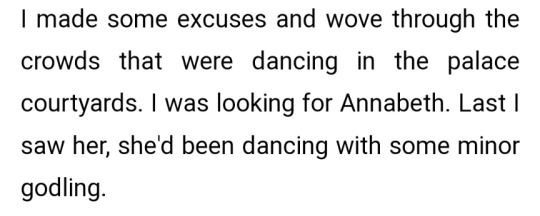
Never going to let y'all forget that annabeth is so slay she pulled a minor godling in ttc
#reading the books you can tell annabeth has danced with lot of boys#when she's asking percy while they're dancing “don't YOU have school dances 🤚” like that girl has EXPERIENCE#and introvert of the century Percy's like “um yes but I stay in the shadows in the corner” 😀👍#Iconic#percy jackson#pjo#rick riordan#annabeth chase#percabeth#pjo fandom#heroes of olympus#pjo tv show#percy jackon and the olympians#pjo tv series#annabeth percy jackson#percy series#percy pjo#percy and annabeth#annabeth#pjo meta#pjo art#percy x annabeth#the titans curse#pjo books#percyjackson#pjo series#pjo spoilers#grover underwood#rick riordanverse#riordanverse
287 notes
·
View notes
Text
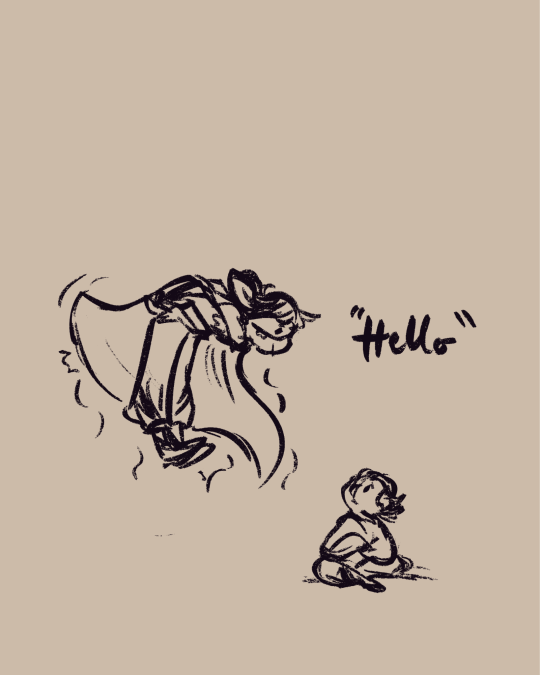
The Boy, the Mole, the Fox, and the Horse but it's young Casey Jr. Mikey, Donnie and Raph

#rottmnt#rise of the tmnt#rise mikey#rottmnt mikey#casey jr#future mikey#rottmnt au#peachmoths art tag#rottmnt fanart#rise of the teenage mutant ninja turtles#ive been thinking about this au a lot i have some panels drawn from the book if yall want more#i think itd be call the boy the mage the inventor and the knight#sorry no leo in this au 😔 (im not sorry)#future rottmnt#rottmnt future au#rottmnt future mikey
465 notes
·
View notes
Text
Let's Talk About How Book 3 Ruined Aang
If you've seen any of my prior ATLA posts, you know that I don't hate Aang. In fact, I quite liked him in Books 1 and 2. He was flawed, as all characters should be, but the show didn't shy away from those flaws or justify them. He was called out for burning Katara and rushing his firebending, Sokka and Katara were rightfully upset when he hid Hakoda's letter, he willingly owns up to the fact that his actions helped drive Toph away, and his entire arc after losing Appa and finding hope again in The Serpent's Path was beautifully done.
(Hell, even in The Great Divide Katara says what Aang did was wrong and he agrees. It's played for comedy, but the show still makes the effort to point out that what he did wasn't the right thing to do. You're just meant to understand that he was fed up and acted off of that)
Those flaws and mistakes were addressed and improved upon and helped Aang to grow as a character.
But for some reason, that aspect of Aang's character was completely flipped in Book 3.
The best examples of this are in both TDBS and EIP. Both the show and the fandom are too quick to brush off that Aang kissed Katara twice without her consent, one of which after she explicitly said she was confused about her feelings.
(And yes, she is angry in response and Aang calls himself an idiot. But after this, it isn't really addressed. They go on like nothing happened for the rest of the episode. Aang's lamentation comes from screwing things up with her romantically, not that he violated boundaries)
The show never really addressed why what he did was wrong. Not only because he wasn't given consent, but also because both times he isn't thinking about what Katara wants. In both instances, Aang is only thinking about himself and his feelings. This is something that persists through a lot of the third book. And by Sozin's Comet it ultimately ruins any character development he had built up in the second book.
One thing I feel was completely disregarded was the concept of having to let go of Katara in order to master the Avatar State.
For me, the implication wasn't that he had to give up love or happiness necessarily. He was emotionally attached to and reliant on Katara, to the point where she was needed to stop him from hurting everyone around him and himself. This is obviously detrimental to his functionality as the Avatar. And the point of him "letting her go" wasn't that he had to stop caring about her, it was that his emotional dependency on her was stopping him from being the Avatar he needed to be and that was what needed to be fixed. I don't even think it's about the Avatar State itself, it's about being able to keep your emotions and duty as the Avatar separate.
(If you look at Roku, he loved and had a wife. It wasn't his love for her that messed everything up, it was his attachment to Sozin. He wasn't able to let Sozin go and not only did he lose his life for it, the world suffered for it. It's the unhealthy attachments that seem to be detrimental, not love itself)
And Aang realizes that in the catacombs, which is how he's able to easily enter the Avatar State and seemingly control it. He let Katara go.
So then why does it seem like his attachment to Katara is not only stronger, but worse in mannerism? He liked Katara in Books 1 and 2- obviously- but he was never overly jealous of Jet or Haru. He only makes one harmless comment in Book 2 when Sokka suggests Katara kiss Jet.
But suddenly he's insanely jealous of Zuko (to the point of getting frustrated with Katara over it), off the basis of the actions of actors in a clearly misrepresentative play. Katara showed a lot more interest in Jet and Aang was completely fine with it.
(Speaking of EIP, Aang's reaction to being played by a woman was interesting. He wore a flower crown in The Cave of Two Lovers. He wove Katara a flower necklace. He wore Kyoshi's clothes and makeup and made a funny girl voice. He willingly responded to Twinkle Toes and had no issue being called that. And for some reason he's genuinely upset about being played by a woman? Aang in Books 1 and 2 would have laughed and enjoyed the show like Toph did. His aversion to feminity felt vastly out of character)
I guess my point is, why did that change? Why was Aang letting go of Katara suddenly irrelevant to the Avatar State? It felt like him letting go was supposed to be a major part of his development. Why did that stop?
Myself and many others have talked about The Southern Raiders. The jist of my thought process about it is his assumption that he knew what was best for Katara. And the episode doesn't really call out why he was wrong. Maybe sparing Yon Rha was better for Katara, maybe it wasn't (the only one who's allowed to make that choice is her). Pushing forgiveness? That was wrong. But the episode has Zuko say that Aang was right when the course of action Katara took wasn't what Aang suggested.
Katara's lesson here was that killing him wouldn't bring back her mother or mend the pain she was going through and that Yon Rha wasn't worth the effort. That's what she realizes. Not that she needed to embrace forgiveness. How could she ever forgive that? The episode saying Aang was right wasn't true. Yes she forgives Zuko, but that wasn't what Aang was talking about. He was specifically talking about Yon Rha.
And that was wrong. Aang can choose the path of forgiveness, that's fine. That's his choice. But dismissing Katara's trauma in favor of his morals and upbringing wasn't okay.
I know it sounds like this is just bashing Kataang. But it's not simply because I don't like Kataang, in my opinion it brings down Aang's character too, not just Katara's. But let's steer away from Kataang and Katara for a minute.
The one thing that solidifies Aang's character being ruined in Book 3 for me is the fact that he- at the end of the story- does the same thing he did in the beginning.
He runs away when things get hard.
Aang couldn't make the choice between his duty and his morals. So he ran. Maybe it wasn't intentional, but subconsciously he wanted an out. And this is really disappointing when one of the things he was firm about in Book 2 was not running anymore. His character went backwards here and that's not even getting into the real issue in Sozin's Comet.
There's been contention about the Lion Turtle intervention. For many- including myself- it's very deus ex machina to save Aang from having to make a hard decision. And that in turn doesn't reflect kindly on his character.
Everyone- Sokka, Zuko, Roku, Kyoshi, Kuruk, and Yangchen (who was another Airbender and was raised with the same beliefs he was and would understand which was the whole point of him talking to her)- told him he had to kill Ozai. They all told him it was the only way. And he refused to listen to any of them, rotating through his past lives until he was given the answer he wanted.
And before anyone says that I'm bashing Aang for following his culture, I'm not. Ending the war peacefully, in my opinion, wasn't the problem. In a way, I think it allowed the world to heal properly. However, that doesn't make up for the fact that Aang refused to make a choice and face the consequences of that choice. Instead, he's given an out at the very last second.
Even if he couldn't kill Ozai and someone else had to deliver the final blow, that would have been better than the Lion Turtle showing up and giving him a power no one's ever had before. It would have been a good compromise, he doesn't have to have blood directly on his hands but what needs to be done needs to still get done. It would also show that being the Avatar isn't a burden he has to bear alone. That when things get hard, he can't run away but he can rely on the people closest to him to help him through hard decisions.
All these issues aren't necessarily a problem with Aang. Aang prior to Book 3 didn't have most of these problems. This is a problem with the way he was handled
#aang critical#anti aang#tagging just in case#i don't want aang stans accusing me of cross tagging#it's really not anti aang tho#long post#anti bryke#this is their fault#look how they massacred my boy#anti kataang#katara deserved better#she's not the focus here#but i thought I'd add that there#character analysis#atla critical#anti book 3#which is kind of an exaggeration#because a lot of book 3 is great#it's just most of the latter half
239 notes
·
View notes
Text
Hey. Reminder that Ponyboy was fourteen (14) when he watched both Johnny and Dally die. Making him the only living greaser who went to the old church. He was fourteen (14) when he was slapped (or thrown, if we’re talking movie) by his brother and fourteen (14) when he ran away. He was fourteen (14) when he watched his friend crumple when protesting a visit from his mom, fourteen (14) when he watched Dallas Winston get shot. Fourteen (14) when he ran into a burning church to save those kids.
#i think about it a lot#im so normal over this book guys wym#ponyboy curtis#johnny cade#dallas winston#darry curtis#my boy was the youngest greaser#the outsiders 1983#the outsiders#wildtalks
278 notes
·
View notes
Text
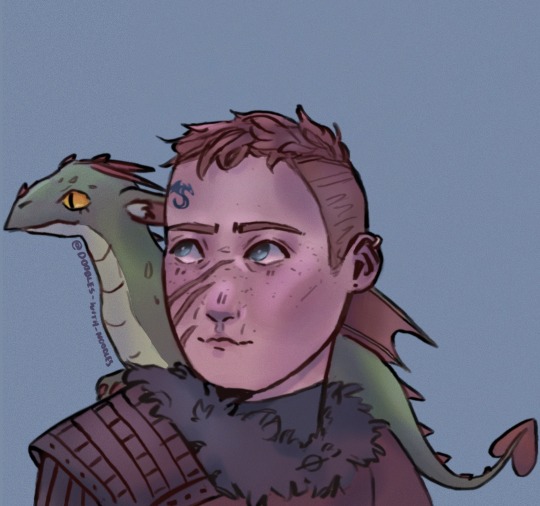
I thought this haircut would look cute on book Hiccup for ages but I couldn’t draw hair back then. Now I can and hit you with whatever-this-hairstyle is :)
#httyd#httyd books#my art#hiccup horrendous haddock iii#httyd fanart#book hiccup#toothless#book toothless#also I’m learning a lot about faces now! Yay#and I made book toothless more… lizardy#digital art#if any more professional artists could see my art process they would have an aneurysm#my sketch is my line art later on. I don’t make a new layer I just make my sketch as neat as possible#im back#WAIT I JUST REALIZED HE LOOKS LIKE THE LITTLE BOY FROM GOD OF WAR#he’s not beating the viking allegations sorry
159 notes
·
View notes
Text
I jokingly thought before that reading Junie B. Jones as a kid turned me into a feminist, but unironically, it kind of did.
I honestly think it comes down to the fact that Junie B. was not only allowed to be "weird," but her character arc never concluded like other girl characters would. In other media featuring "weird girls," the girl always ended her arc tamed - by force or convince, she would be prettied up, she would smile and be polite, and she would never speak out of turn. She would be perfect then, and would shed her veneer of individuality with the freedom that is conformity. As a kid, I noticed that girls weren't permitted to be "weird" like boys were. So when I read Junie B. Jones, I loved that she was frankly just fucking weird. She said things out of turn, she was rambunctious and imaginative and she was a realistic portrayal of a little girl. I loved reading those books because the narrative taught her lessons without punishing her for being weird, if that makes sense. So often, narratives punished weird girls for the crime of being a socially unacceptable girl, not for any true wrongdoing like lying.
Anyway, I just think it's interesting, because I watched and read a ton of books and shows and movies featuring girls and women, but none of them truly empathized with (or even tried to empathize with) weird girls on their own merits and capabilities and terms, or embraced the idea of a "socially inept/unacceptable" girl without punishing her in some way for her supposed ineptitude.
#feminism#and like junie b. got in trouble A LOT but she wasn't punished FOR being weird (honestly i thought she was adhd as a kid)#i haven't read the books in WELL over a decade but this is what i truly remember liking about the books#and i felt as a kid it said something that she was a seeming rarity among the sea of other portrayals of girls#am i looking too deep into this? honestly i don't care#and it makes me wonder if all the pushback those books got was partially because junie b. wasn't an 'acceptable' girl#like she's no more 'out there' than the portrayals of little boys that are out there and there were lessons and things from what i remember#i'm not saying you HAVE to like the books by the way but i think sometimes other people can get really angry about GIRLS acting like kids#i was ranting about these books to my dad because he didn't like them but he did still let me read them so thanks dad 🫡🫡#i just remember them being a huge part of my personal library because of how realistic and relatable junie b. was#like i acted really similarly to her when i was a kid and i felt like i was being understood (which is why i hc she's adhd/audhd/autistic)
202 notes
·
View notes
Text
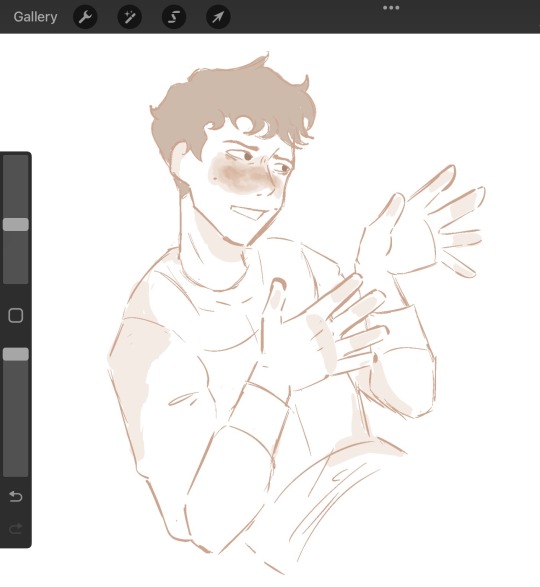
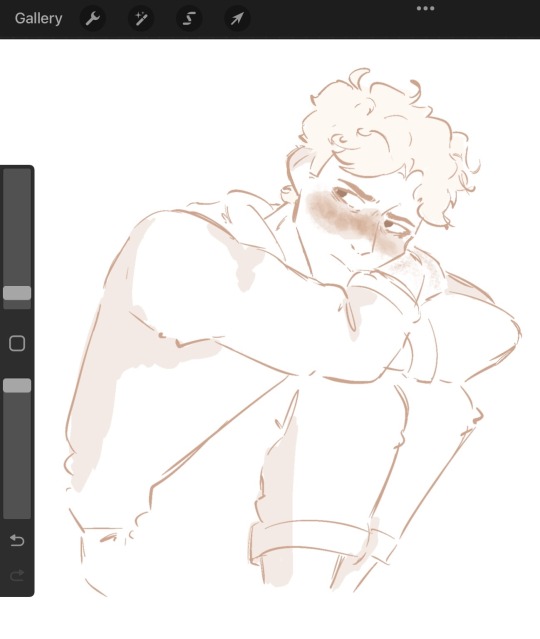
i’ve been rewatching the maze runner movies and rereading the books in the past weeks and now my brain can only focus on them
#the maze runner#tmr newt#tmr thomas#newtmas#tmr newtmas#tmr fanart#fan art#boys in love#imagine being a stupidly angry protagonist in a dystopian novel with a very concerned and worried bf#yeah yeah still in denial after the death cure#like after every damn rewatch#anyway I had a hard time rereading the books#idk they weren’t as good as I remembered them 😭#but well I’m 19#maybe it’s just because I’m not the target audience anymore#anyway had a lot of fun with these#tmr#my art : tmr
179 notes
·
View notes
Text
ok I have A Lot of thoughts about the staircase confession (well really about Edwin's whole character arc, but all roads lead to rome) but for now I just wanna say that, yes, I was bracing myself for something to go terribly wrong when I first watched it, and yes, part of me was initially worried its placement might be an uncharacteristically foolish choice made in the name of Drama or Pacing or Making a Compelling Episode of Television but at the expense of narrative sense--
But I wanna say that having taken all that into account, and watched it play out, and sat with it - and honestly become rather transfixed by it - I really think it's a beautifully crafted moment and truly the only way that arc could've arrived at such a satisfying conclusion.
And if I had to pinpoint why I not only buy it but also have come to really treasure it, I'd have to put it down to the fact that it genuinely is a confession, and nothing else.
That moment is an announcement of what Edwin has come to understand about himself, but because it takes the form of a character admitting romantic feelings for such a close friend, I think it can be very easy, when writing that kind of thing, to imbue it with other elements like a plea or a request or even the start of a new relationship that, intentionally or not, would change the shape of the moment and can quickly overshadow what a huge deal the telling is all on its own. But that's not the case here. Since it is only a confession, unaccompanied by anything else, and since we see afterward how it was enough, evidently, to fix the strangeness that had grown between him & Charles, we're forced to understand that it was never Edwin's feelings that were actually making things difficult for him - it was not being able to tell Charles about them. 'Terrified' as he's been of this, Edwin learns that his feelings don't need to either disappear completely or be totally reciprocated in order for him to be able to return to the peace, stability, and security of the relationship with which he defines his existence - and the scale of that relief a) tells us a hell of a lot about Edwin as a character and b) totally justifies the way his declaration just bursts out of him at what would otherwise be such a poorly chosen moment, in my opinion.
Whether or not they are or ever could be reciprocated, Edwin's feelings are definitively proven not to be the problem here - only his potential choice to bottle it up - his repression - is. And where that repression had once been mainly involuntary, a product of what he'd been through, now that he's got this new awareness of himself, if he still fails to admit what he's found either to himself or to the one person he's so unambiguously close with, then that repression will be by his own choice and actions.
And he won't do that. Among other things, he's coming into this scene having just (unknowingly) absolved the soul of his own school bully and accidental killer by pointing out a fact that is every bit as central to his self-discovery as anything about his sexuality or his attraction to Charles is: the idea that "If you punish yourself, everywhere becomes Hell"
So narratively speaking, of course it makes sense that Edwin literally cannot get out of Hell until he stops punishing himself - and right now, the thing that's torturing him is something he has control over. It's not who he is or what he feels, but what he chooses to do with those feelings that's hurting him, and he's even already made the conscious choice to tell Charles about them, he was just interrupted. But now that they're back together and he's literally in the middle of an attempt to escape Hell, there is absolutely no way he can so much as stop for breath without telling Charles the truth. Even the stopping for breath is so loaded - because they're ghosts, they don't need to breathe, but also they're in Hell, so the one thing they can feel is pain, however nonsensical. And Edwin certainly is in pain. But whether he knows what he's about to do or not when he says he 'just needs a tick,' a breather is absolutely not what's gonna give him enough relief to keep climbing - it's fixing that other hurt, though, that will.
Like everything else in that scene, there's a lot of layers to him promising Charles "You don't have to feel the same way, I just needed you to know" - but I don't think that means it isn't also true on a surface level. It's the act of telling Charles that matters so much more than whatever follows it, and while that might have gone unnoticed if anything else major had happened in the same conversation, now we're forced to acknowledge its staggering and singular importance for what it is. The moment is well-earned and properly built up to, but until we see it happen in all its wonderful simplicity, and we see the aftermath (or lack thereof, even), we couldn't properly anticipate how much of a weight off Edwin's shoulders merely getting to share the truth with Charles was going to be, why he couldn't wait for a better, safer opportunity before giving in to that desire, or how badly he needed to say it and nothing else - and I really, really love the weight that act of just being honest, seen, and known is given in their story/relationship.
#dead boy detectives#edwin payne#the case of the very long stairway#im sorry this really IS the short version of my thoughts i swear#i didnt want to get long and rambley backing everything up and mentioning everything else this forces me to reconsider#i just feel like i've barely interacted w this fandom and still seen quite a few odd duck takes on this moment imo#i dont think he wouldntve got the nerve to say it otherwise#(he was already going to! & if anything his new experiences in hell only cement that being the right choice)#and as much as i get what fear can do to a person i still definitely dont think he was resigned to staying in hell if charles reacted badly#i truly think he just couldnt keep it to himself any longer#the show is upfront about his escaping hell being a testament to his own strength rather than a lucky break of some sort#so i think even being on the receiving end of a rescue mission getting out still must take a lot of strength in this universe#and telling charles that definitely made him stronger/in less pain#so yeah totally necessary it happened where and when it did in my book#also i hope it doesnt sound like im being dismissive of anything charles says in this scene#but the way i see it those were all things they both already knew#so reaffirming them just adds to the idea that the act of Telling Each Other Things is what's so important here#rather than counting as a truly separate thing this conversation achieves#just my two cents
91 notes
·
View notes
Note
Do you have a favorite character design from Lunar Boy?
Oh that's a tough one!! But if I had to pick my fav design in Lunar Boy, I think it would be Aminah!
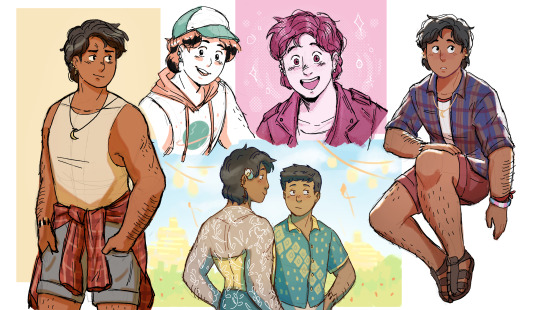
She took a lot of re-designing, but at the heart of it we wanted a character who embodied cultural non-conformity as a trans girl in Indonesia, someone for Indu (the trans boy main character) to look up to! Her design is me expressing a bunch of my feelings about queer femininity and how it shouldn't be narrowed to traditional femininity for fear that they're not "girl-ing hard enough". I've always disliked the discourse that it's transphobic to show trans girls being any kind of masc or have a body type that's not petite because it sets a standard where only cis people get to dictate how far gender expression and body diversity representation can go.
Aminah is big, buff, butch and yes she's really hairy too, the narrative
never questions her girlhood.
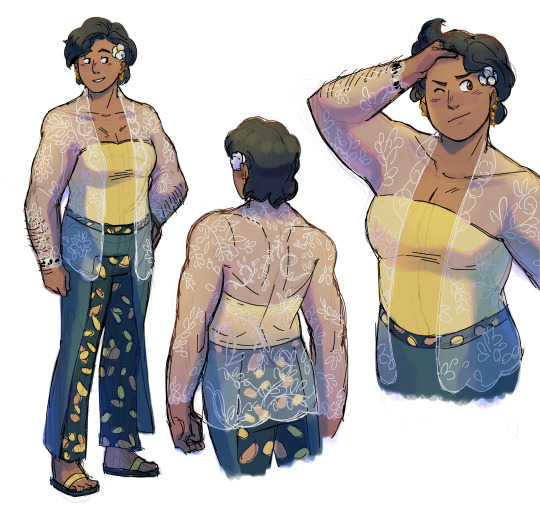
If anyone's read my big MAWS essay they'd know that queer reclamation of cultural wear is really important to me. So having Aminah, an Indo butch girl interpret the kebaya in her own way that lets the clothing proudly accentuate her non-conforming body meant the world to me. I find the kebaya very dysphoric and uncomfortable personally so this was like embracing it through art!
Aminah is one of those characters that felt really cathartic to bring to life. I hope people enjoy meeting her!
#askjesncin#lunar boy#ty for the lunar boy ask!! pls feel free to ask anything else about it :3#im working on a lot of promo stuff for Lunar Boy behind the scenes#how is this book going to be out in a month or so like wHAT
102 notes
·
View notes